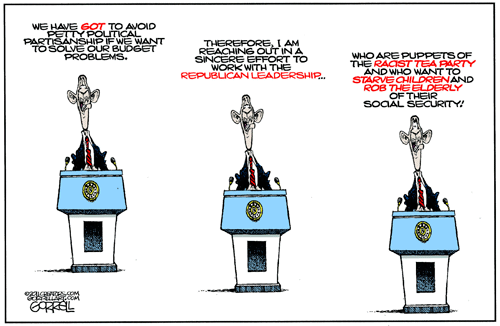This is your morning Open Thread. Pour your favorite beverage and review the past and comment on the future.
Find the past “On This Day in History” here.
April 25 is the 115th day of the year (116th in leap years) in the Gregorian calendar. There are 250 days remaining until the end of the year.
On this day in 1859, ground broken is for Suez Canal
At Port Said, Egypt, ground is broken for the Suez Canal, an artificial waterway intended to stretch 101 miles across the isthmus of Suez and connect the Mediterranean and the Red seas. Ferdinand de Lesseps, the French diplomat who organized the colossal undertaking, delivered the pickax blow that inaugurated construction.
Artificial canals have been built on the Suez region, which connects the continents of Asia and Africa, since ancient times. Under the Ptolemaic rulers of Egypt, a channel connected the Bitter Lakes to the Red Sea, and a canal reached northward from Lake Timsah as far as the Nile River. These canals fell into disrepair or were intentionally destroyed for military reasons. As early as the 15th century, Europeans speculated about building a canal across the Suez, which would allow traders to sail from the Mediterranean to the Indian Ocean via the Red Sea, rather than having to sail the great distance around Africa’s Cape of Good Hope.
The Suez Canal, when first built, was 164 km (102 mi) long and 8 m (26 ft) deep. After multiple enlargements, the canal is 193.30 km (120.11 mi) long, 24 m (79 ft) deep, and 205 metres (673 ft) wide as of 2010. It consists of the northern access channel of 22 km/14 mi, the canal itself of 162.25 km/100.82 mi and of the southern access channel of 9 km/5.6 mi.
It is single-lane with passing places in Ballah By-Pass and in the Great Bitter Lake. It contains no locks; seawater flows freely through the canal. In general, the Canal north of the Bitter Lakes flows north in winter and south in summer. The current south of the lakes changes with the tide at Suez.
The canal is owned and maintained by the Suez Canal Authority (SCA) of the Arab Republic of Egypt. Under international treaty, it may be used “in time of war as in time of peace, by every vessel of commerce or of war, without distinction of flag.”
Construction by Suez Canal Company
In 1854 and 1856 Ferdinand de Lesseps obtained a concession from Sa’id Pasha, the Khedive of Egypt and Sudan, to create a company to construct a canal open to ships of all nations. The company was to operate the canal for 99 years from its opening. De Lesseps had used his friendly relationship with Sa’id, which he had developed while he was a French diplomat during the 1830s. As stipulated in the concessions, Lesseps convened the International Commission for the piercing of the isthmus of Suez (Commission Internationale pour le percement de l’isthme des Suez) consisting of thirteen experts from seven countries, among them McClean, President of the Institution of Civil Engineers in London, and again Negrelli, to examine the plans of Linant de Bellefonds and to advise on the feasibility of and on the best route for the canal. After surveys and analyses in Egypt and discussions in Paris on various aspects of the canal, where many of Negrelli’s ideas prevailed, the commission produced a final unanimous report in December 1856 containing a detailed description of the canal complete with plans and profiles. The Suez Canal Company (Compagnie Universelle du Canal Maritime de Suez) came into being on 15 December 1858 and work started on the shore of the future Port Said on April 25, 1859.
The excavation took some 10 years using forced labour (Corvée) of Egyptian workers during a certain period. Some sources estimate that over 30,000 people were working on the canal at any given period, that altogether more than 1.5 million people from various countries were employed, and that thousands of laborers died on the project.
The British government had opposed the project of the canal from the outset to its completion. As one of the diplomatic moves against the canal, it disapproved the use the slave labor of forced workers on the canal. The British Empire was the major global naval force and officially condemned the forced work and sent armed bedouins to start a revolt among workers. Involuntary labour on the project ceased, and the viceroy condemned the Corvée, halting the project.
Angered by the British opportunism, de Lesseps sent a letter to the British government remarking on the British lack of remorse a few years earlier when forced workers died in similar conditions building the British railway in Egypt.
Initially international opinion was skeptical and Suez Canal Company shares did not sell well overseas. Britain, the United States, Austria, and Russia did not buy any significant number of shares. All French shares were quickly sold in France



 I love sweet potatoes and not just at Thanksgiving. I like them baked, boiled and mashed and dipped in tempura batter and fried. They are great in breads and baked desserts. They are very nutritional, an excellent source of vitamin A and a good source of potassium and vitamin C, B6, riboflavin, copper, pantothetic acid and folic acid. Sweet potatoes are native to Central America, grown in the Southern US states since the 16th century and are in the same family of plants as Morning Glories. The plant is a trailing vine with a large tuberous root.
I love sweet potatoes and not just at Thanksgiving. I like them baked, boiled and mashed and dipped in tempura batter and fried. They are great in breads and baked desserts. They are very nutritional, an excellent source of vitamin A and a good source of potassium and vitamin C, B6, riboflavin, copper, pantothetic acid and folic acid. Sweet potatoes are native to Central America, grown in the Southern US states since the 16th century and are in the same family of plants as Morning Glories. The plant is a trailing vine with a large tuberous root.

Recent Comments